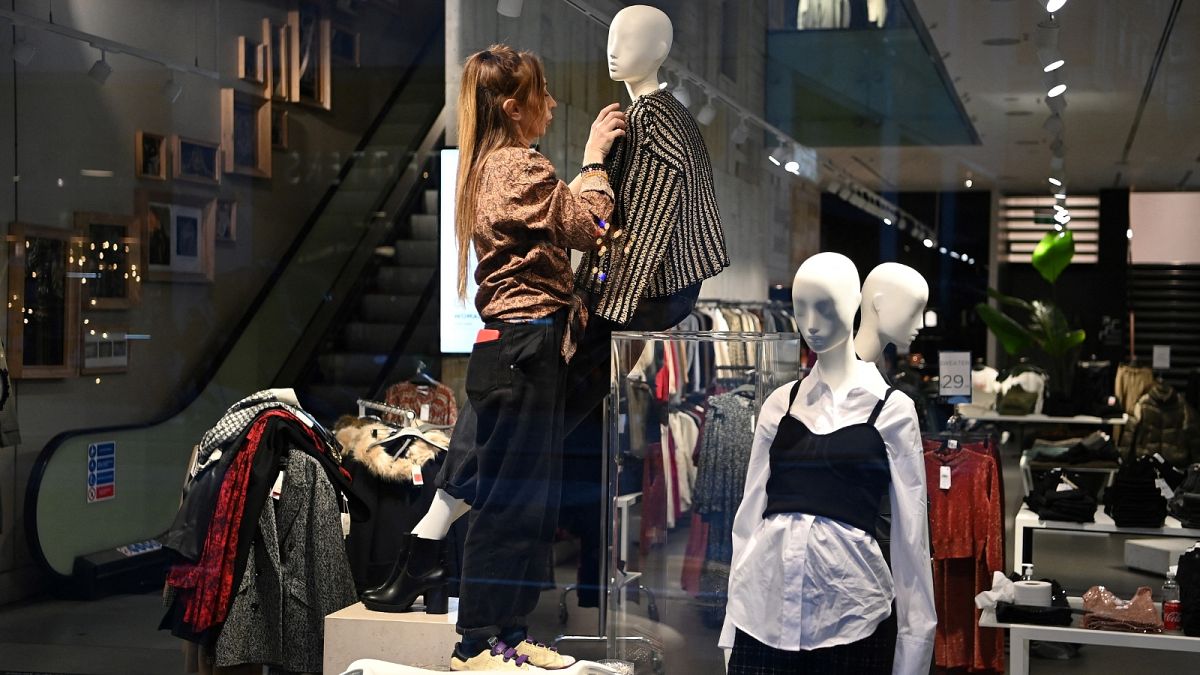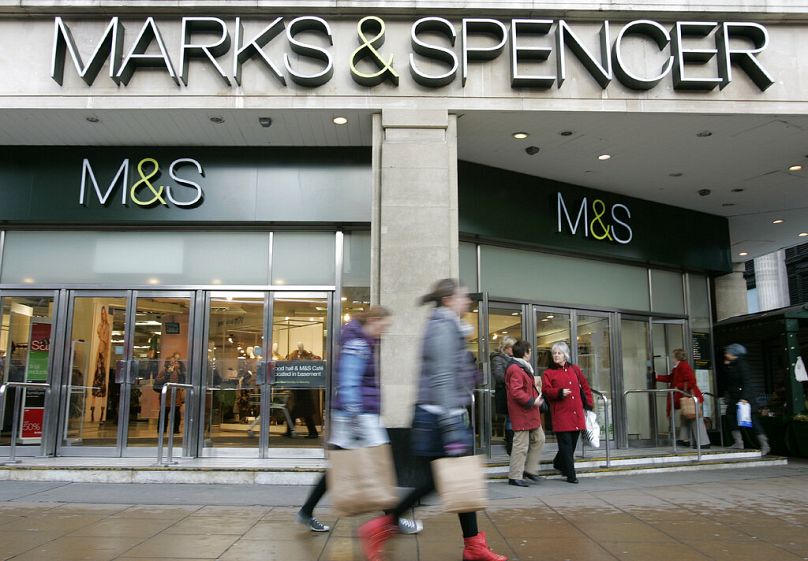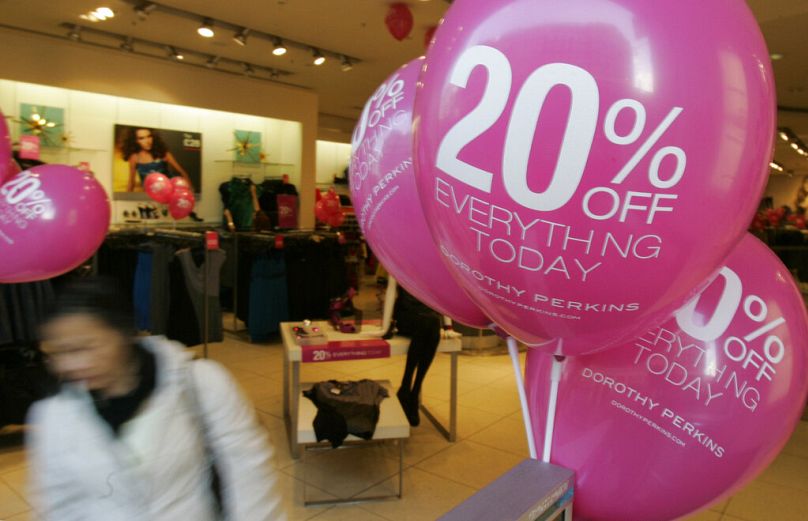Organised criminal gangs have been found trafficking women and children in the UK for large-scale shoplifting, exacerbating an alarming surge in retail crime, while a grim reality of human trafficking unfolds.
Women and children from Eastern Europe are being trafficked in large numbers to the UK, and put to work by organised crime gangs to carry out large-scale shoplifting operations.
Police, and charities who work with vulnerable people, say many trafficked people are also pressganged into pickpocketing, begging and selling drugs; and that thousands more young asylum seekers who arrived in the UK unaccompanied are at risk of further exploitation by criminal gangs.
In one high-profile case, authorities say an Eastern European criminal gang based in Glasgow has recruited 154 thieves since its discovery in 2019. The gang strategically targets retailers in major cities, including London, Birmingham, Manchester, Darlington, and various locations across the North and Scotland.
The gang's activities were first reported by BBC Scotland.
Non-profit organisation Retailers Against Crime (RAC) which detects and prevents criminal activity by sharing information among its members, told Euronews that they receive intelligence from partners about individuals that are committing high-value bulk thefts of various items.
"The results from the reports show that these individuals are travelling country-wide committing crimes," RAC said.
Epidemic of retail crime
Retail thefts are on the rise in the UK, with shoplifting up 25% year-on-year in England and Wales, while Scotland saw a 21% increase compared to the year before, according to a recent report by the Union of Shop, Distributive, and Allied Workers (USDAW).
"This 25% increase in shoplifting is further evidence that we are facing an epidemic of retail crime, which is hugely concerning," USDAW General Secretary Paddy Lillis stated.
‘Our members have reported that they are often faced with hardened career criminals in the stores and we know that retail workers are much more likely to be abused by those who are stealing to sell goods on.’
Detective Superintendent Steven Bertram, leading the Police Scotland national child abuse investigation, emphasised their commitment to disrupt organised criminal activities, particularly those involved in human trafficking.
"These criminals are known to commit human trafficking, which is the illegal trade in human beings, both adults and children, for the purposes of commercial exploitation," he told Euronews.
Criminal exploitation such as forced shoplifting, begging and selling of drugs made up just under 9% of modern slavery-related calls to the anti-slavery charity Unseen’s helpline.
Shoplifting costs UK retailers hundreds of millions
Whilst the statistics paint a grim picture of the increasing prevalence of shoplifting, the implications of this criminal enterprise reach beyond the immediate economic impact.
Although shoplifting is often seen as petty theft its increase has also meant higher costs for retailers with £953 million (€1.15 billion) lost in shoplifted goods in the UK last year.
‘‘More than not, [shoplifting] is linked to serious and organised crime with information being reported on a daily basis involving Organised Crime Groups travelling nationwide.’ the RAC told Euronews.
‘There needs to be a change in the way retail crime in particular shoplifting is perceived, and it simply must stop being swept under the carpet and portrayed as a petty crime.’
Why Eastern European women?
Primarily, those recruited by the Eastern European crime organisation in Glasgow were women, and also children, as they are usually seen as less suspicious by retail security.
Although UK nationals are the most commonly identified victims of modern slavery and human trafficking reported in Britain, they are followed by Albanians, Vietnamese and Romanians, many of whom are either here legally or have overstayed their visas.
The UK is an attractive place for many Eastern Europeans, with large established communities, and better pay and improved access to medical services, a recent report by the Home Affairs Committee on human trafficking stated, talking specifically about Romanian women being trafficked in the UK.
Romania, along with other Eastern European countries, has low wage levels, widespread poverty, limited access to higher education, and a lack of government support, particularly for single mothers making them more at risk.
The National Crime Agency reports a 10.3% increase in referrals for modern slavery and human trafficking in the UK in 2022. Experts say this underscores the urgent need for comprehensive efforts to address the root causes and consequences of human trafficking.
Trafficking Children
Estimates suggest 27,000 children are at high risk of exploitation by organised crime gangs in the UK, with many being coerced using varying tactics to entrap them into committing crimes ranging from shoplifting to selling drugs.
"Criminals often use a range of tactics, exploiting children both online and offline," Jess Edwards, Senior Policy Advisor for Childhood Harms at Barnardo’s, explained to Euronews.
"Children can be approached on social media and gaming platforms, or in local areas, with offers of ways to earn some money."
"In one case, a child was offered a Subway sandwich after not being able to afford lunch, and then was exploited into criminal activity to 'repay’ the debt," Edwards explained.
Many refugees and migrants coming to the UK are children separated from their families, leaving a large vulnerable group exposed, with 20% of referrals through Barnardo’s Independent Child Trafficking Service for criminal exploitation being children from abroad.
More than 4,000 unaccompanied child refugees have been placed in hotels in the UK since 2021. The ongoing risks faced by these vulnerable children include trafficking and exploitation for forced labour, and criminal activities.


